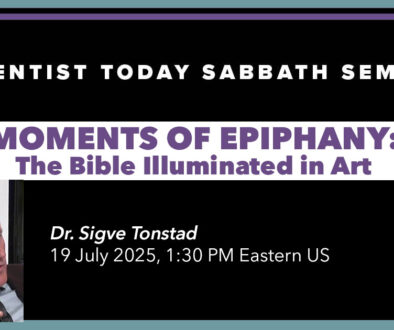ATSS: Worship vs. Life, Subservience to the Divine vs. Free Choice
16 March 2022 |
In his essay entitled, “God and the Concept of Worship” James Rachels concludes:
We have, then, a conflict between the role of worshiper, which by its very nature commits one to total subservience to God, and the role of moral agent, which necessarily involves autonomous decision making. The role of worshiper takes precedence over every other role the worshiper has; when there is any conflict, the worshiper’s commitment to God has priority over everything. But the first commitment of a moral agent is to do what in his own heart he thinks is right.
Worship, says Rachels, is total subservience to God. Yet the worshiper leaves his church and goes into a secular world, where he or she has to make decisions—to be, as Rachels says, a moral agent. We will consider questions like these:
- What makes worship, worship?
- Is worship a surrender to God, or just following the bulletin, being entertained by good music, and learning some new ideas from the sermon?
- Is worship honest and ethical if the leader/preacher asks us to make decisions under the influence of powerful emotions, or if they borrow God’s authority to influence people? That is, can we trust worship as led by humans?
- Is there an inherent conflict between being a worshiper and, at the same time, a person with free choice and autonomy, before God and in our community?
- Does worship carry over into the secular world? Does what you do in church on Sabbath affect your actions and responsibilities at work on Monday? And vice versa?
- Can the structure of worship—the way it’s organized, and the attitudes and actions of the leaders—make worship more or less effective?
Teacher:
Maury D. Jackson chairs the Pastoral Studies Department of the H.M.S. Richards School of Religion at La Sierra University.
Moderator:
Loren Seibold is the Executive Editor of Adventist Today
How to join:
One-click link: https://us06web.zoom.us/j/85737833389
Passcode: The second of the Old Testament’s three major patriarchs. When he was a boy his father, Abraham, attempted to make him a human sacrifice—and fortunately didn’t succeed. FIVE CHARACTERS, ALL CAPS.
When:
ATSS starting time depends on where you are. If you’re on the west coast of the United States, it’ll be 10:30 AM. On the east coast, 1:30 PM.
Times around the world:
-
- Reykjavík: 6:30 PM
- College Place: 10:30 AM
- Lincoln: 12:30 PM
- Denver: 11:30 AM
- Bracknell: 6:30 PM
- Loma Linda: 10:30 AM
- Nairobi: 8:30 PM
- Gackle: 12:30 PM
- Hosur: 11:00 PM
- Waco: 12:30 PM
- Tulsa: 12:30 PM
- Helsinki: 8:30 PM
- Stockholm: 7:30 PM
- Hamburg: 7:30 PM
- Cape Town: 7:30 PM
- Madrid: 7:30 PM
- Paris: 7:30 PM
- Honolulu: 7:30 AM
- Cooranbong: 5:30 AM (Sunday)
- Perth: 2:30 AM (Sunday)
The class is intended to last about 2 hours, though the conversation often continues to 4 PM on the east coast of the United States.
About our class:
- The AT Sabbath Seminar is intended to be a courteous forum. We discuss and ask questions politely. We don’t accuse, get angry, or put people down.
- Stick to the topic in both comments and chat discussion.
- Make your comments and questions short—don’t dominate.
- Keep your microphones muted unless you are called upon to make your comment or ask your question.
- Indicate your interest in speaking by raising your electronic hand—under the “reactions” button.
- Please use your name when you sign in! Not your phone number, not your initials. This will help us differentiate you from unwelcome guests who want to disrupt us. You can set your name after signing on by clicking on the 3 dots next to your picture, which drops down a menu.
- If it should happen that we are attacked so that we have to stop the meeting, we’ll quickly post a new meeting link on our AT Facebook page.
We look forward to getting acquainted with you!
Coming up:
- Alicia Johnston
- Mathilde Frey
- Raj Attiken
- Laurence Turner
To comment or question, click/tap here




